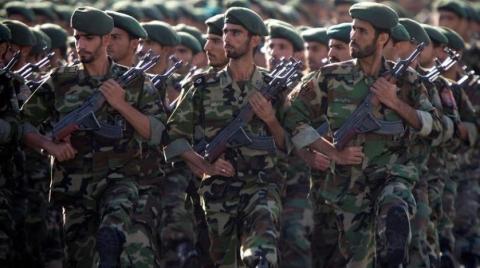
A large number of Iraqi citizens lost more than half of their money in Iranian banks due to the current economic crisis in Tehran and the rapid decline of the rials exchange rate, as the country braces for the re-imposition of US sanctions.
Several Iraqi citizens have spoken publicly about losing more than half of their money following the collapse of the Iranian currency and the loss of more than half of its value in recent months.
Iranian banks dictate that Iraqi citizens, who want to deposit money, must convert it to the national currency. They cannot withdraw the amount, in Iranian rial as well, until a year after making the deposit.
Iraqi politician and investor Mazin al-Eshaiker wrote on his Facebook page about the collapse of the currency: "The price of the note (one hundred dollars) today on the black market reached one million Iranian rials!"
Eshaiker predicted that with the implementation of the first phase of US economic sanctions against Iran on August 6, the value of the rial will fall even further. It will continue to collapse in November after the implementation of the second batch of sanctions, which would include a total ban on Iranian oil imports.
A merchant working in Baghdad’s Shorja market told Asharq Al-Awsat that many traders have deposited large sums of US dollars in Iranian banks.
Regular citizens from Baghdad and various provinces, especially Karbala and Najaf, have also deposited their money there. They are now suffering major losses following the dramatic decline of the rial, he added.
“One of my fellow merchants put $400,000 into an Iranian bank and the current collapse in Irans currency cost him $300,000,” he said.
Professor of International Economic Relations at the University of Iraq, Abdul Rahman al-Mashhadani, blamed the government and the Central Bank of Iraq for causing “hundreds, and possibly thousands, of Iraqi citizens to lose their savings and homes because of deposits in Iranian banks”.
He told Asharq Al-Awsat that officials should have warned citizens against depositing their money in state banks that are economically unstable, but, unfortunately, they did not.
“We have been warning (officials) for more than two years. Nobody listened to us. The 25 percent interest rate given by the Iranian banks is not reassuring,” he added.
Mashhadani believed that Iranian banks have committed “fraud in an official way,” adding, however: “You cannot blame a besieged country in need of hard currency, but the Iraqis have a responsibility not to waste their national fortune in such a manner.”
Iran’s economy has been suffering from chronic inflation for decades, said Ali al-Moussawi, an economic journalist who spent part of his life in Iran.
He explained that the central bank tried to counter the inflation by raising interest rates on the rial to 25 percent for medium-term deposits.
“Such high interests have been an irresistible incentive for Iraqi citizens,” Moussawi told Asharq Al-Awsat.
He said that “until a few months ago, the situation was fine, but US sanctions have reduced the value of the currency to about a quarter so far, meaning a decrease in purchasing power of the rial received as interest by Iraqis depositing in banks there.”
Moussawi said that the collapse of local currency created an economic shock to many of the Iraqi families that relied on these benefits in financial matters.












